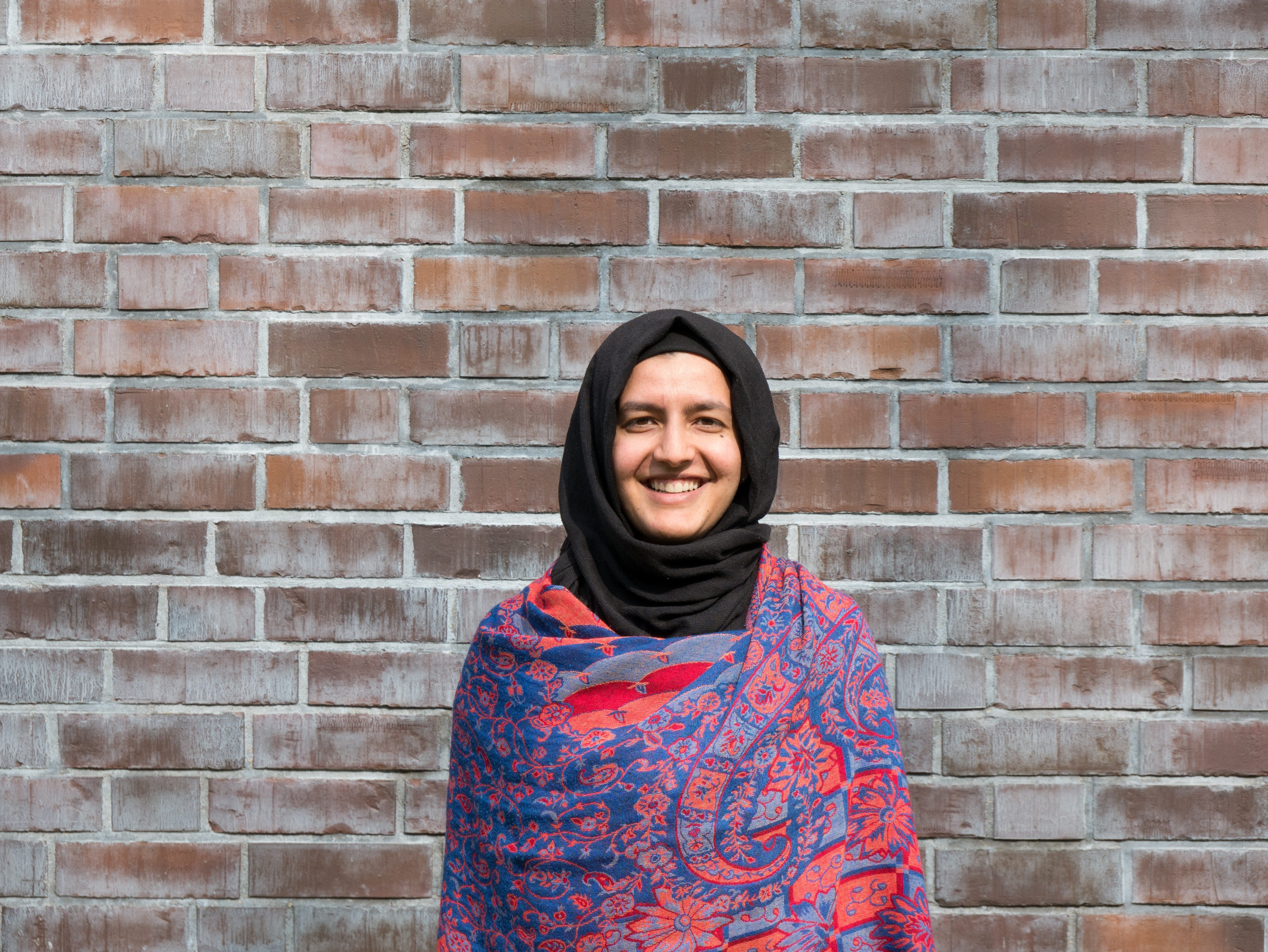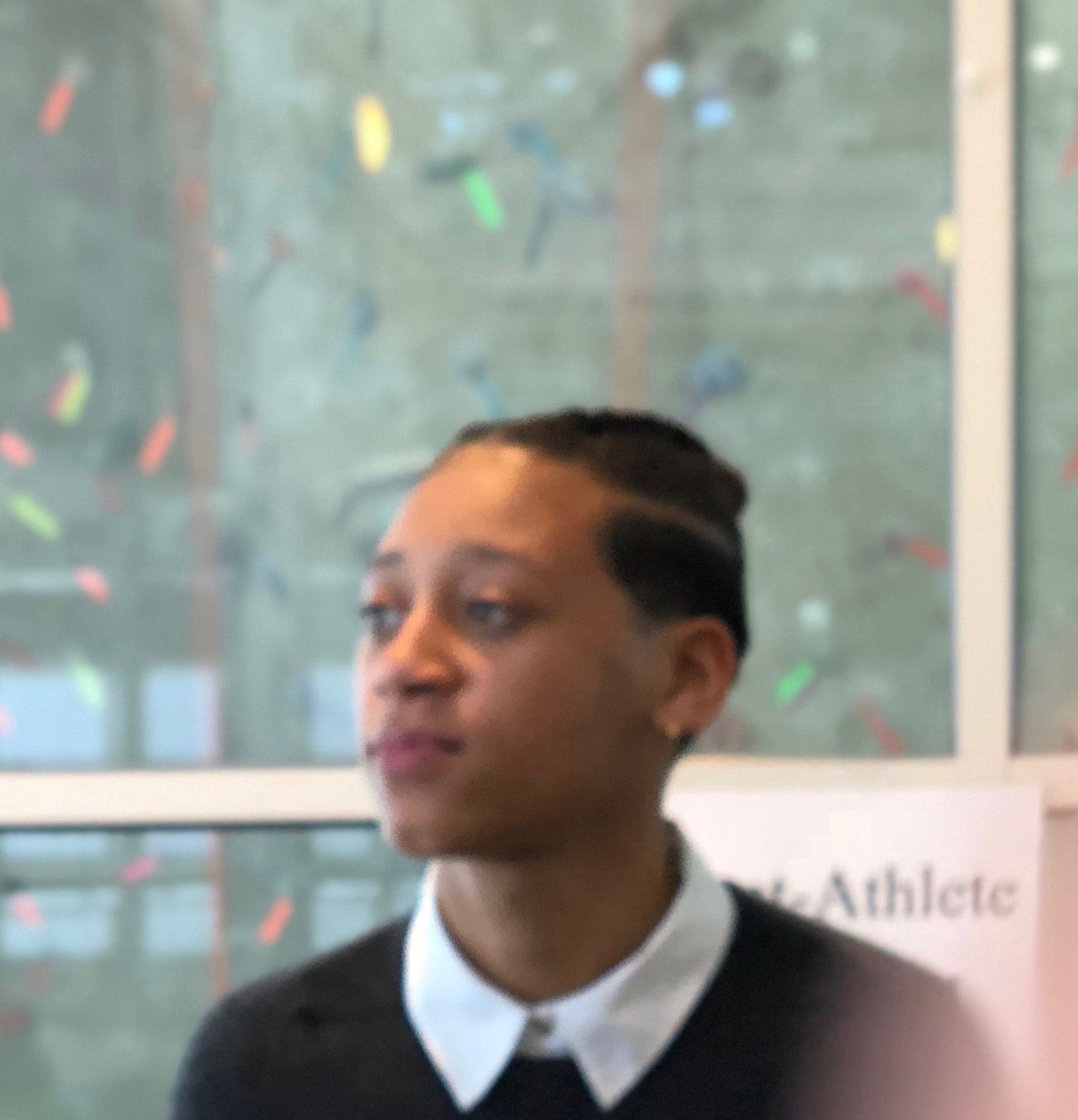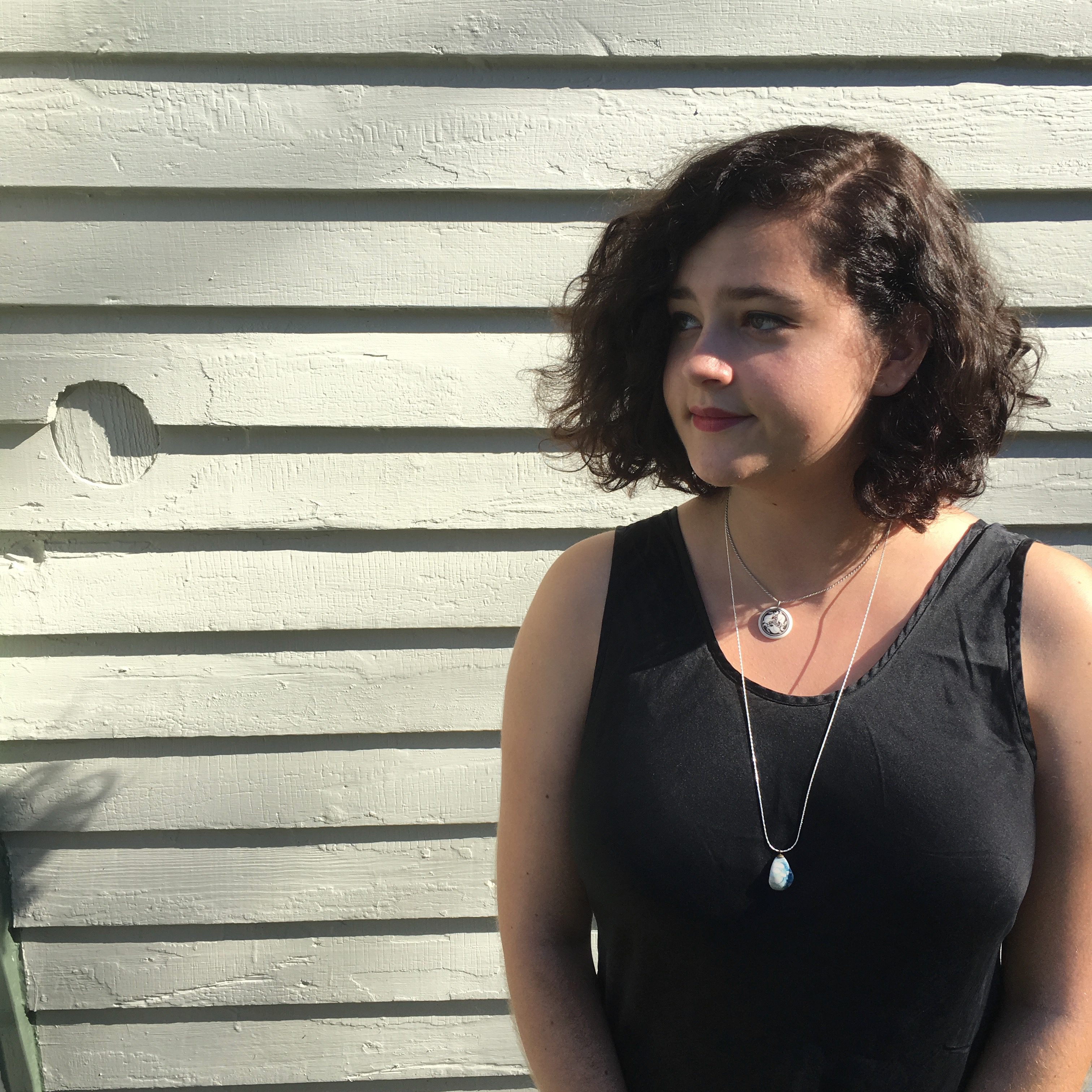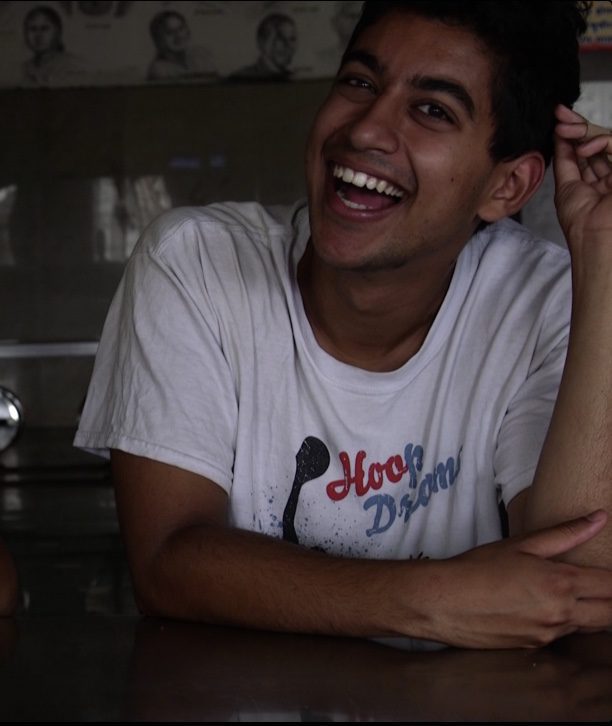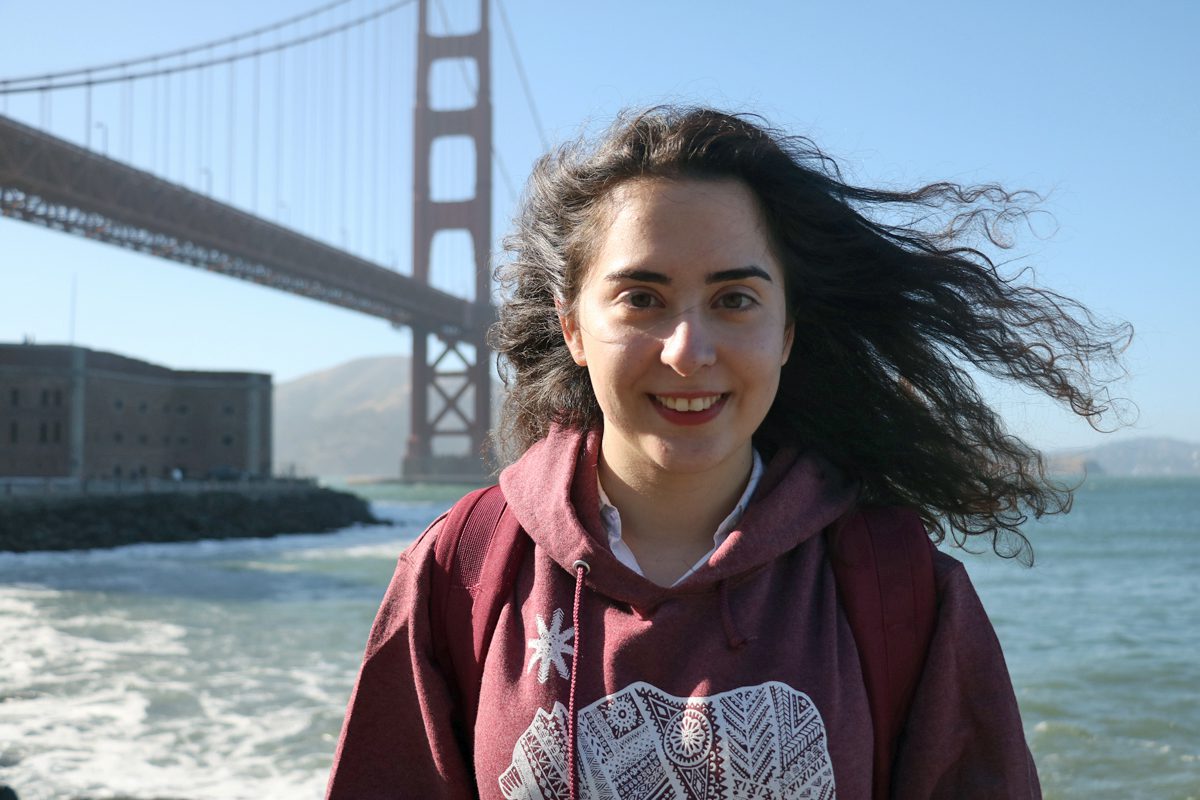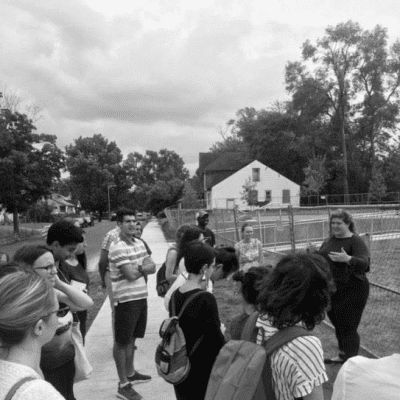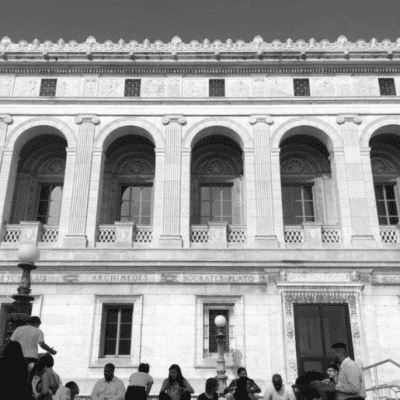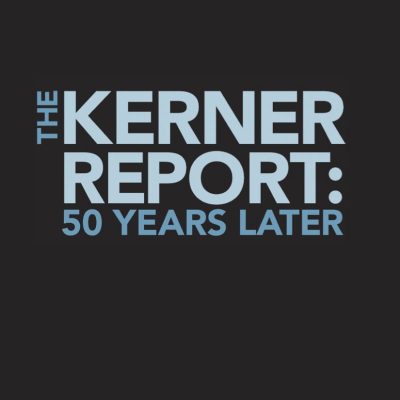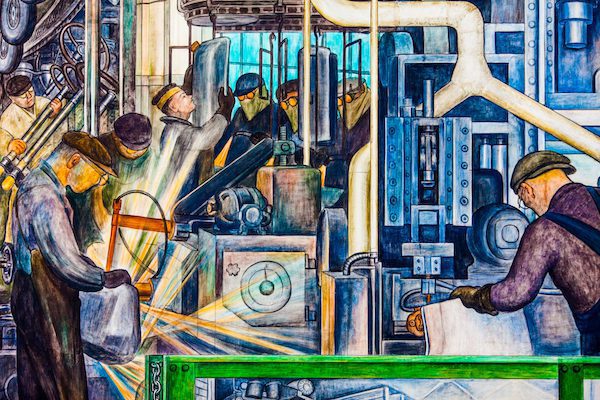Details
Article
The report on “Education” was produced as a part of the publication: The Kerner Report: 50 Years Later. This publication was released by the 2018 Humanity in Action Detroit Fellowship program.
In 2016, 35% of Detroiters under the age of 35 ranked educational improvement as the highest priority for the city.
The Kerner Report ranked inadequate education as number four of the twelve causes of the 1967 rebellion. The school system failed to “equip children to develop their potential and to participate fully in American life,” particularly minority youth. The Commission believed integration, more federal funding, early childhood development, vocational training, and bringing test scores up would help solve this problem. In 2016, 35% of Detroiters under the age of 35 ranked educational improvement as the highest priority for the city, (1) thus demonstrating the persistence of this problem in public discourse. Increased privatization, mismanagement and destabilization of Detroit Public Schools Community District (DPSCD), and systemic racism have led to serious injustices within the educational system. In this chapter, we discuss the lack of access to an equitable education for Detroiters, while providing recommendations for future initiatives. By equitable education we mean that students should be supported differently based on varying levels of need to engage in the process of building one’s capacity to fully and effectively participate in society by providing avenues for one to become who they truly are.
Education in Detroit Today
Poor access to equitable educational resources restricts Detroit’s citizens’ self development and civic participation. Due to deep rooted continuities of state-sanctioned violence, as seen through racism and segregation, black Detroiters face discriminatory barriers to literacy and adequately funded schools. We center our analysis on these two issues, highlighting the strategic positioning of city and state governments, educational nonprofit organizations, and local institutions.
Literacy
Unacceptably low literacy rates deny Detroiters access to liberty and nondiscrimination in American life. As the ongoing federal appeal to the class action suit Gary B. v. Snyder (2) claims, the State of Michigan is depriving Detroit’s school’s students—97 percent of whom are students of color— to function properly in society. We see this as a manifestation of the many afterlives of slavery in the United States. This case in Detroit schools marks a critical point in American civil rights initiatives in the 21st century.
The outcomes of illiteracy span beyond mere civic participation and unconstitutionality; they hold specific outcomes in stable livelihoods.
The Metro Detroit region contacts the most segregated school district border in the country between DPSCD and Grosse Pointe. (3) The State of Michigan justifies this de facto segregation with neighboring Grosse Pointe through the lack of evidence that different conditions stem from race and thus do not violate the equal protection clause. (4) This hypocrisy marks the self-serving positioning of state government entities, which continue the educational discrimination identified in the Kerner report through poor enforcement of established legal protections, such as Title VI of the Civil Rights Act of 1964.
The five lowest performing schools in Detroit, which comprise the Plaintiff in Gary B. v Snyder, were assigned grades of Fs and Ds by the non-profit organization Excellent Schools Detroit. These schools, along with the districts at large, lack effective literacy programs and curricula to teach literacy, or to remediate when students begin to lag behind. Students in the DPSCD are, on average, 2.3 grade levels below their actual grade level in basic reading proficiency. (5)
Forty-three percent of adults with the lowest levels of literacy live in poverty, as compared to only 4% of those with the highest levels of literacy.
The outcomes of illiteracy span beyond mere civic participation and unconstitutionality; they hold specific outcomes in stable livelihoods. Forty-three percent of adults with the lowest levels of literacy live in poverty, as compared to only 4% of those with the highest levels of literacy.
The State of Michigan’s disregard for Detroit’s students deprives the next generation of liberty and human dignity. Educational non- profits work to communicate this information and create grassroots organizations to pool together resources and activism against racial inequities in education.
Inadequate Funding
To ensure access to equitable education, students first require basic educational resources. This includes, but is not limited to adequate school buildings, up-to-date and relevant textbooks, necessary supplies and qualified teachers. DPSCD students have been denied these most basic resources. (6)
Of the 103 operating school buildings today, 30% are in unsatisfactory condition and 20% are in poor condition, six times the amount of unsatisfactory conditioned buildings in the nation. These unsafe conditions deter access to safe learning environments and, thus, contribute to the many disadvantages students of color are facing in this school district.
Poor administration by city council has led to unorganized and unstable instructional environments. In June 2016, the state passed legislation explicitly and solely for Detroit Public Schools allowing non-certificated teachers to educate in the district. While employed, these teachers were supplied with out-of-date material, oftentimes being forced to contribute from their own low salary to provide students with necessary supplies.
Of the 103 operating school buildings today, 30% are in unsatisfactory condition and 20% are in poor condition.
Trying to correct this wrong, in July of 2018 DPSCD Board of Education approved a hiring plan for teachers, who have certification but no classroom training. Although this addresses one issue, it perpetuates Detroit Public Schools’ maladministration of providing band-aid solutions to systemic issues.
Role Of Local Institutions
DPSCD recently launched the Arts Cultural Passport program to improve access to the arts for Detroit students. In its pilot year this initiative aimed to facilitate a partnership between the Detroit Institute of Arts, Detroit Symphony Orchestra, and Michigan Opera Theatre, to improve and widen Detroiters’ connection to arts institutions. The Passport program has faced significant challenges in efficacy due to their exclusive approach to arts education. In failing to properly include community perspectives in the programming, the initiative struggles to meet students’ needs and interests. This devalues students’ experiences and perpetuates class divisions.
Many organizations serve as intermediaries and educational alternatives that connect the community with necessary resources, as exemplified by the work from Freedom Schools, the Charles H. Wright Museum of African American History, and Focus: HOPE, among others. As evident by the analysis below, the success of these organizations stems from seeing community needs and involving the community at every step of the way.
Education Organizations and Initiatives
There are many organizations taking steps to bring Detroiters access to equitable education. Some of these are discussed below.
Detroit Public Library
The Detroit Public Library system has 22 branches within the metropolitan area. Aside from free book lending, they also offer resources such as computer and wifi access, printing, after school classes for youth, and remedial/skilled training for adults. Of note, their push to offer classes on coding and digital literacy enhances skill-building and is of great value to the community. Their “Wash and Learn” partnership with Libraries Without Borders, which consists of a pop-up library model in laundromats, has become a national blueprint for spreading resources in underserved areas.
Detroit Community Technology Project
The Detroit Community Technology Project (DCTP) is a coalition of community leaders and nonprofits bridging the digital divide through the Equitable Internet Initiative. With engagement from locals in each community, DCTP installs high-speed internet and provides digital-literacy training to underserved neighborhoods.
The organization takes pride in a 100% high school graduation rate over the last 10 years.
Downtown Boxing Gym Youth Program
Having “Books before boxing” as a motto, the organization offers holistic educational services for children ages 7-18. Thanks to its free, after-school classes and activities in academic enrichment, college and career readiness, community engagement, health/ wellness and STEAM, (7) its patrons perform better at school, (8) strengthen their mental and physical fitness and are encouraged to be active members of their community. Specifically, the organization takes pride in a 100% high school graduation rate over the last 10 years and in 2017 their students’ math skills improved by 227% after participating in their program. (9)
482Forward (10)
482Forward is a citywide education organizing network in Detroit comprised of neighborhood organizations, parents, and youth. Committed to equitable education, educational justice, and community self governance, 482Forward works with existing neighborhood-based organizations to build education organizing programs to address these issues. Through grassroots campaign processes, 482Forward has developed research and policy with significant victories in addressing chronic absenteeism, school closures, and equity and accountability.
Detroit Independent Freedom Schools
The Detroit Independent Freedom School movement draws from community expertise and resources to provide free, African-centric education through tutoring and cultural learning activities for Detroit youth and adults. The curriculum focuses on the needs and interests of students and aims to build confidence and self-determination.
Escuela Preparatoria Academia de las Américas / Academy of the Americas
Part of DPSCD, the Academy of the Americas provides elementary and middle school public education that supplements district requirements with a bilingual program in English and Spanish. Students begin their early instruction almost entirely in Spanish, gradually phasing to 50% in Spanish and 50% in English.
More organizations working in this field include Hantz Foundation, Boggs School, Focus: HOPE, Michigan Science Center, Charles H. Wright Museum of African American History, Paul Robeson Malcolm X Academy, and Grand Circus Coding Bootcamps.
Emerging and Future Trends
Virtual Classrooms, Cloud Computing, Open-Source Software (OSS), Mobile Learning, Internet of Things (IoT), Artificial Intelligence (AI) and Blockchain technologies can potentially lessen educational barriers resulting from disabilities or geographical location and lack of available educational resources, while simultaneously enhancing the classroom experience. Nevertheless, if the current digital divide remains unaddressed, this increased dependency on technology will worsen existing socioeconomic disparities. Apart from practical difficulties in integrating these technologies into the curriculum, we are forced to reconsider the role of educators in learning as well as the ways in which human interaction and emotional development are fostered through education.
The automation of administrative tasks by AI could release funding and time for teachers to focus on refining equitable pedagogies. Due to AI’s potential impact on the workforce, educational methods need to prioritize skills irreplaceable by machines, such as critical and cross-domain thinking, creativity and social skills. Additionally, the utilization of algorithms and Big Data by AI implies more accurate insights on students’ needs, competencies and interests, which can thereby catapult individualised and engaging learning. However, this aggregation of learning analytics raises privacy concerns, especially for minors, and could exacerbate a surveillance culture in schools. Similarly, if the data used to train an AI system are biased in terms of race, class, gender, etc., the same biases will be perpetuated in the tutoring and insights originating from AI. (11)
If the current digital divide remains unaddressed, this increased dependency on technology will worsen existing socioeconomic disparities.
Faced with the ongoing privatization of schools and educational resources, OSS and Blockchain could democratize learning and instill accountability in the educational system. Specifically, open textbooks require less funding to be updated and, as a product of co-creation and co-ownership, are subject to more transparent review processes, whereas Blockchain could decentralize the storage of student records (12) or be used for issuing tokens to fund educational activism. (13)
Recommendations
We acknowledge the chronic systemic racism and destabilization by educational mismanagement and policies in Detroit. Therefore we recommend the following to assist with reshaping the educational landscape and facilitating universal access to education:
- Equitable funding per student.
To this day, socioeconomic status and geographic location continues to determine academic success rather than student capability and interest. The state must allocate funding based on student need (taking into account race, disability, and socioeconomic status, among other factors), and redirect funding to schools of need. - Early childhood development.
Equitable education begins in early childhood development. Public schools must provide children with opportunities for school preparedness, basic literacy, and personality development to supplement existing initiatives from community civic organizations. - Provide for the needs of the students.
It is crucial for public schools to recognize the various struggles students face on a daily basis, such as food insecurity, barriers to health and hygiene, and family responsibilities. Therefore the school’s infrastructure must include laundry, food, and school supplies among other essential services. - Reorganize the school system and the schools.
In order to hold the city, the district, and schools accountable to the needs of the community, 482Forward14 recommends establishing a Detroit Education Commission, a regional council for each district, and empowered school leadership teams involving parents, students, staff, and community members. Additionally, barriers to start a charter school need to be standardized and ,instead of being arbitrary, be part of a broader theoretical framework.
The following ideas can be considered the next steps in further developing Detroit Public School Community District, while universal access as a foundation is the necessary first step.
- Equitable access every step of the way.
Barriers to equitable access to education obstruct the development of students at every step of the way. Literacy must be declared a constitutional right in the United States. Schools must become the center of the neighborhood community as a place to learn, teach and participate in the community and the greater society. Public transit must be expanded throughout Detroit’s neighborhoods in order to enable students’ access to educational programs throughout the city. Resources must be directed toward digital justice initiatives that provide sustainable digital-literacy training. - Inclusive Curriculum and Practices.
Current educational materials and practices are rooted in white supremacy as they emphasize white standards of knowledge and historical contributions by primarily white, middle class men. This curriculum excludes and miseducates students everywhere, but is especially destructive to black student populations, in Detroit and in other black-majority cities. Educational organizations must collaborate to fund and elevate Black and non-dominant narratives and promote relevant, culturally-influenced education and self- determination for minority communities. And research must be conducted to formulate new standardized tests that are free of racial bias. - Unrestricted Personal Development.
Equitable access to education means that each student is able to shape their future without constraints based on their environment or identities. Students in underserved communities are especially targeted by the excessive presence of police and security in schools as well as punitive and racist codes of conduct, leading to a disproportionately higher number of incarcerated youth from marginalized communities. It is imperative that this school-to- prison pipeline be dismantled through a strict separation of policing and punitive police practices from the place of education known as school. Punitive policies and security measures must be replaced with positive reinforcement and preventative policies. Codes of conduct must be evaluated to determine how they target students of color, and remedied or dismantled.
References
- “Detroit Metropolitan Area Communities Study (DMACS).” 2018. Poverty Solutions at The University of Michigan. Accessed July 31. https://poverty.umich.edu/ projects/detroit-metropolitan-area-communities-study-dmacs/.
- U.S. District Court Case in which Judge Stephen Murphy III ruled that there is no fundamental right of access to literacy under the U.S. Constitution. Case is to undergo Federal appeal.
- The poverty rate in Detroit is seven times that of Grosse Pointe, and 75.3% of Grosse Pointe Public Schools students are white, compared to 2.2% of DPSCD students: “Fault Lines: America’s Most Segregating School District Borders.” 2018. EdBuild | Arbitrary. Accessed July 31. http://viz.edbuild.org/maps/2016/fault- lines/.
- U.S. District Court Case in which Judge Stephen Murphy III ruled that there is no fundamental right of access to literacy under the U.S. Constitution. Case is to undergo Federal appeal.
- Higgins Lori. 2018. “Cost to Fix Detroit School Buildings: $500 Million.” Detroit Free Press. Detroit Free Press. June 22. https://www.freep.com/story/news/education/ 2018/06/22/detroit-school-building-conditions-cost/724970002/; “Detroit Schools’ Outdated Curriculum Sets Students up to Fail, Audit Finds.” 2018. Bridge Magazine. April 12. https://www.bridgemi.com/detroit-journalism-cooperative/ detroit-schools-outdated-curriculum-sets-students-fail-audit-finds.
- U.S. District Court Case in which Judge Stephen Murphy III ruled that there is no fundamental right of access to literacy under the U.S. Constitution. Case is to undergo Federal appeal.
- Science, Technology, Engineering, Arts and Mathematics.
- “Detroit Youth Boxing and Educational Program.” 2018. Downtown Boxing Gym. Accessed July 31. https://downtownyouthboxing.org/.
- Ibid.
- “482Forward.” 2018. 482Forward. Accessed July 31. http://www.482forward.org/.
- Buranyi, Stephen. 2017. “Rise of the Racist Robots – How AI Is Learning All Our Worst Impulses.” The Guardian. Guardian News and Media. August 8. https:// www.theguardian.com/inequality/2017/aug/08/rise-of-the-racist-robots-how-ai- is-learning-all-our-worst-impulses.
- “Academic Certificates on the Blockchain.” 2018. UNIC Blockchain Initiative. Accessed July 31. https://digitalcurrency.unic.ac.cy/free-introductory-mooc/self- verifiable-certificates-on-the-bitcoin-blockchain/academic-certificates-on-the- blockchain/
- “CVL.” 2018. Civil. Accessed July 31. https://civil.co/cvl/.
- “482Forward.” 2018. 482Forward. Accessed July 31. http://www.482forward.org/.


